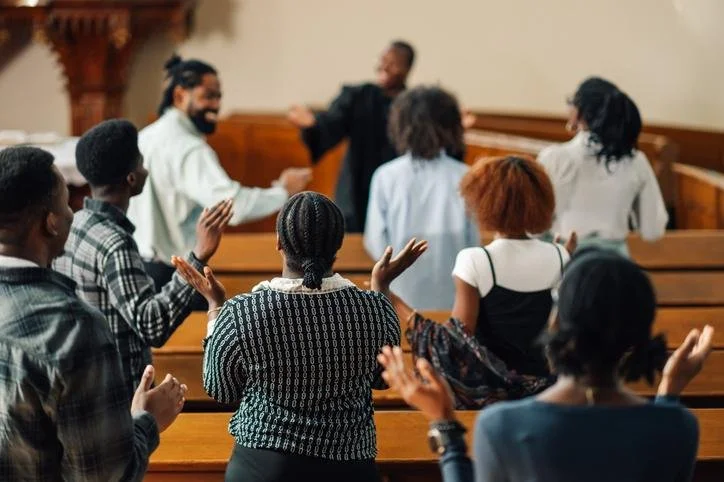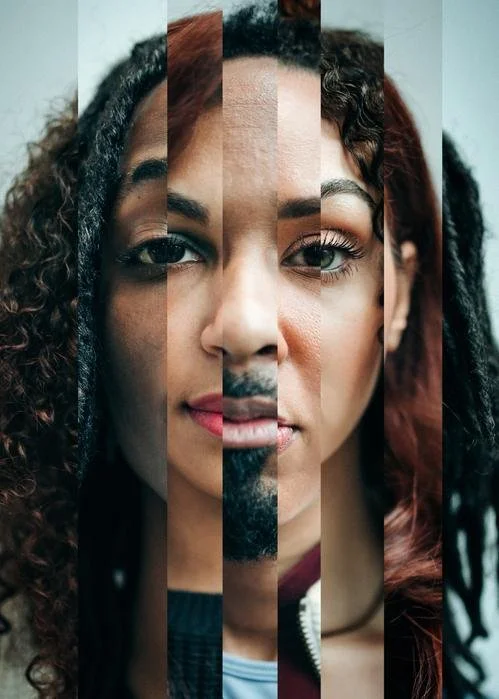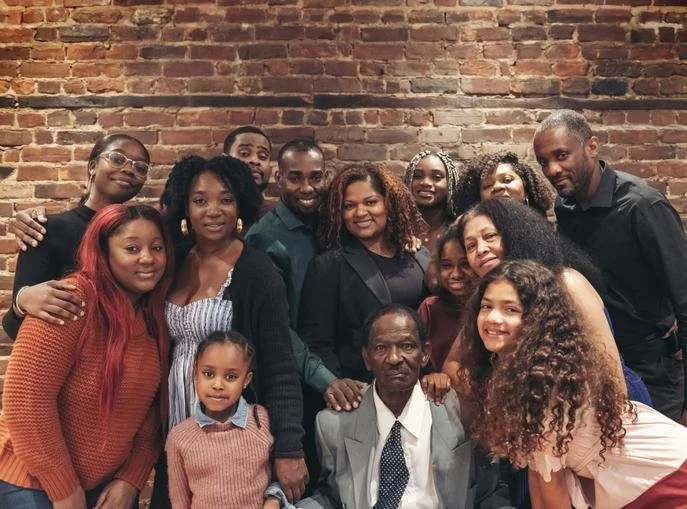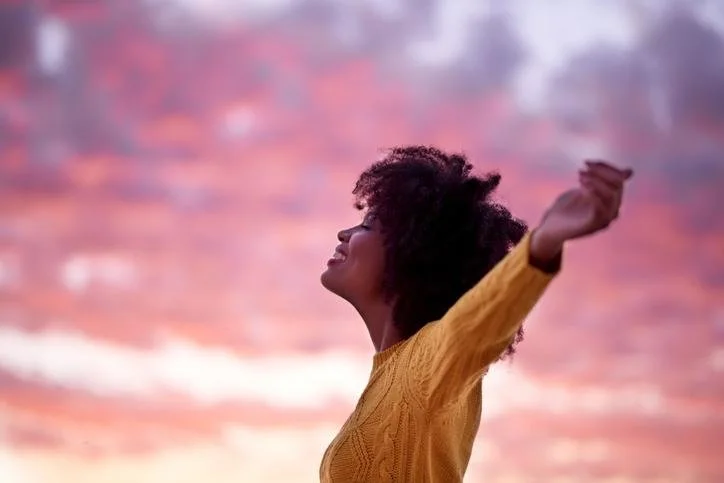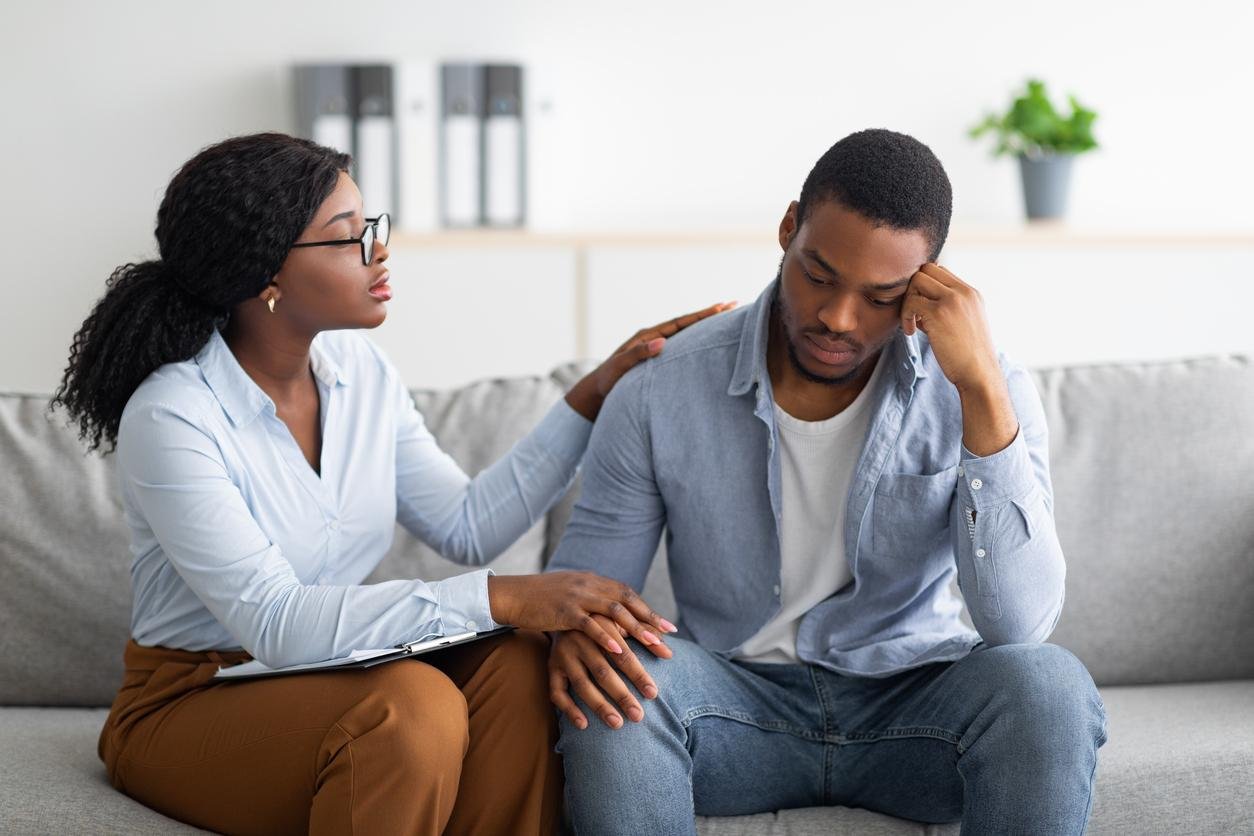Is the Black Church Still a Safe Space? Depends Who You Ask
The Black church holds a powerful legacy of faith, resilience, and community, but it also carries a complicated history of silence, shame, and spiritual harm that continues to shape conversations about healing, inclusion, and transformation today. We discuss it here!
Photo Credit: zamrzutitonovi via iStockPhoto.com
By: Jamila Gomez
The Black church has always been more than just a building. It’s been a refuge, a gathering place, a sanctuary when the rest of the world felt unsafe. For many of us, it’s where we learned to pray, to praise, to hold on. But for others, it’s also where we first learned how to hide.
Because while the Black church gave us faith, community, and language for survival—it also gave us silence, shame, and suppression.
The Duality We Don’t Talk About Enough
To say the Black church saved lives isn’t an exaggeration. It has carried generations through slavery, segregation, systemic injustice, and communal grief. It built leaders, movements, and entire cultural traditions.
But alongside that power sits a less often acknowledged truth: the church has also been a space where many of us first encountered spiritual manipulation, misogyny, homophobia, and emotional abuse—all wrapped in scripture.
And that’s the part folks don’t always want to admit: you can love a space and still name how it hurt you.
The Pain That Got Dressed Up as Doctrine
For many Black women, the church taught us to be small and silent. To serve before we spoke. To stay in marriages that were breaking us. To “pray it away” instead of going to therapy. To mistake suffering for virtue.
For many queer folks, it meant sitting in pews that preached damnation over dignity—learning to perform identity in order to survive the judgment.
For survivors of abuse, the message was often clear: protect the reputation of the church, even if it costs you your voice.
What do you do when the place that taught you about God also taught you how to disappear?
Why Some of Us Left
Some of us didn’t leave the church because we lost faith—we left because we found ourselves.
We started asking questions no one wanted to answer. We got tired of being told that our trauma was a test, or that our boundaries were rebellion. We craved a God who didn’t require erasure as an offering.
And so we left. Not always in anger. Sometimes just in silence.
And Yet, for Some, It’s Still Home
There are Black churches doing real, radical work—centering mental health, embracing LGBTQ+ members, challenging generational harm. For some, it remains a lifeline, a chosen family, a vital anchor in the chaos of the world.
So when someone asks, “Is the Black church still a safe space?”—the most honest answer might be: For some, yes. For others, it never was.
The Black church has a legacy of resilience and contradiction. It has held us up and held us back. It has birthed liberation and enabled silence. It has given us hope, and for some of us, it has demanded our hiding in return.
But telling the truth about that complexity isn’t betrayal—it’s healing. Because safe spaces don’t just feel good. They make room for hard conversations. They grow. They evolve. They repent when needed.
And maybe the real question isn’t whether the Black church is a safe space—but whether it’s willing to become one.
YOU MAY ALSO BE INTERESTED IN:
SHARE TO SOCIAL MEDIA
Polished Ain’t Protection: Dismantling the Lie That Playing by the Rules Keeps Us Safe
Respectability politics continues to harm Black communities by promoting conformity over authenticity, reinforcing systemic racism, and dividing us based on outdated standards of acceptability. We discuss it here!
Photo Credit: filadendron via iStockPhoto.com
By: Jamila Gomez
Respectability politics has been lurking in our conversations for generations. You know the vibes: “Pull your pants up,” “Speak properly,” “Don’t act ghetto.” It’s that belief that if we just present ourselves the “right” way—dress a certain way, talk a certain way, follow all the rules—we’ll be treated with dignity and respect.
But let’s be real: has that ever truly worked?
Respectability politics was born out of survival. Back in the day, our grandparents and great-grandparents navigated a violently racist society by trying to fit into the mold that white America deemed “acceptable.” It was a strategy. If they could just prove they were “good” and “decent,” maybe they could avoid the worst of what white supremacy had to offer. It was a coping mechanism, and in a way, it made sense—when your very life is on the line, you do what you have to do.
But here’s the thing: no amount of code-switching, Sunday-best outfits, or Ivy League degrees has ever stopped racism. Look at how they treat us—whether we’re in hoodies or three-piece suits. The truth is, systemic racism doesn’t care how polished you are. Sandra Bland was college-educated and articulate. Barack Obama was President. They still faced disrespect and worse. So what are we really gaining by clinging to respectability?
More importantly, it creates division within our community. It tells us that some Black people are “better” than others based on how closely they align with whiteness or “mainstream” standards. That’s dangerous. It turns us against each other instead of standing together against the real enemy: the system that devalues Black lives across the board.
We’re not a monolith. We are diverse, vibrant, and full of contradictions—and that’s beautiful. We have the right to be ratchet and refined, hood and scholarly, spiritual and secular. All of it is valid. None of it makes us less worthy of dignity, safety, or justice.
So maybe it’s time we leave respectability behind. We don’t need to shrink ourselves or conform to be worthy of basic human rights. The revolution will not be polite—and it shouldn’t have to be.
Let’s love on each other in all our forms. Let’s uplift the aunties with the loud nails, the queer cousins, the kids with grills and dreams. Because we all deserve to be free—not just the ones who “fit in.”
YOU MAY ALSO BE INTERESTED IN:
SHARE TO SOCIAL MEDIA
Confronting the Enemy Within: Challenging Anti-Blackness Across the Diaspora
Confronting anti-Blackness within the global Black community is essential for healing, unity, and building solidarity through truth, empathy, and accountability. We discuss it here!
By: Jamila Gomez
Anti-Blackness within our communities is one of those conversations that makes family dinners uncomfortable and Twitter timelines explosive. But it’s necessary. Anti-Blackness isn’t just external—it can thrive quietly within our own circles, shaping interactions and opportunities among us.
At its root, anti-Blackness within the diaspora is tied to colonialism and slavery. From Brazil to Jamaica to the United States, centuries of conditioning taught us to internalize colorism and hierarchies based on proximity to whiteness. We often unconsciously reproduce these biases within our families, churches, schools, and workplaces.
Think about the aunties who praise lighter skin or looser curls, or families discouraging their kids from playing outside for fear of getting “too dark.” It shows up in derogatory jokes about Haitians or Africans made by Black Americans and Caribbeans. It’s in how Afro-Latinos often find themselves invisible or dismissed in conversations about Latin identity. This behavior doesn’t happen in isolation—it’s a painful manifestation of deeply ingrained beliefs about what it means to be acceptable, respectable, or successful.
The first step toward healing is acknowledging the harm done. As a community, we need honest dialogue about how anti-Blackness influences our interactions and perceptions. Yes, the legacy is painful, but denying its existence won’t liberate us from its grip.
It’s also important to understand that confronting anti-Blackness doesn’t mean we’re creating divisions. Quite the opposite: acknowledging these tensions can help us unify authentically. Solidarity is stronger when it’s rooted in truth, respect, and accountability. This starts with calling out problematic behavior, even when it comes from loved ones or respected community members.
We should also uplift voices and experiences from across the diaspora. This means intentionally creating spaces where darker-skinned, marginalized members of our community can lead and be heard without the filters of colorism or prejudice.
Cultural education and self-reflection are key. Learning about the diversity of our Black experiences globally helps dismantle stereotypes and confront internalized racism. It reminds us of our shared history, struggle, and potential strength in unity.
Finally, dismantling anti-Blackness within our diaspora is critical to fighting broader systemic racism. Our strength as a global Black community is amplified when we confront these issues head-on. We’re powerful individually, but unstoppable together.
Let’s continue the difficult conversations. Let’s keep challenging each other with love, empathy, and accountability. Because our liberation as a collective depends on rooting out anti-Blackness, not only in society but within ourselves first.
YOU MAY ALSO BE INTERESTED IN:
SHARE TO SOCIAL MEDIA
“That’s My Cousin”: The Power of Cousin Bonds in the Black Community
In the Black community, cousin relationships go beyond bloodlines, serving as lifelong bonds of friendship, support, and shared cultural identity that shape our earliest memories and hold families together. We discuss it here!
Photo Credit: lisegagne via iStockPhoto.com
By: Jamila Gomez
In the Black community, “cousin” doesn’t just mean your mama’s sister’s kid. It’s deeper than blood. It’s a bond, a lifeline, a whole experience. For so many of us, cousins are our first best friends, our first partners-in-crime, and sometimes the only people who understand the full flavor of what we’re going through. In a world that often tries to break us down, cousin relationships build us up.
Growing up, cousins were the ones we sat at the kiddie table with during Thanksgiving, sneaking extra rolls and giggling through family gossip. They were the ones we shared rooms with during summer breaks, staying up late talking about everything from cartoons to crushes. Cousins helped us learn how to roast, how to play spades, how to braid hair, how to defend ourselves — and how to laugh through pain. That bond doesn’t fade with time. If anything, it gets stronger.
And let’s be real: in many Black families, the cousin network is what holds the whole structure together. We may not always come from traditional nuclear homes, but our families are rich with aunties, uncles, Big Mamas, and cousins who step up, show out, and show love. Your cousin might’ve been your babysitter, your ride to school, your first call after a breakup. They’re your people — your tribe — when the world gets cold.
Cousins often grow up like siblings, especially in households where resources were tight and love had to stretch wide. That closeness builds a unique understanding, an unspoken language that even your closest friends might not get. You share memories, music, inside jokes, and sometimes trauma. But the beauty is in how cousins help you carry it — laughing, praying, healing together.
In today’s world, where everything moves fast and people feel more disconnected than ever, those cousin ties are sacred. They remind us where we come from. They keep us grounded. And for the next generation, it’s up to us to keep that spirit alive — making sure our kids know their cousins, grow with them, and love them like we did.
So when we say, “That’s my cousin,” it’s not just a label. It’s pride. It’s history. It’s love.
Hold your cousins close. Call them. Check on them. Celebrate them. Because in this community, cousin love is family love — and family is everything.
YOU MAY ALSO BE INTERESTED IN:
SHARE TO SOCIAL MEDIA
Practicing Gratitude: A Radical Act of Joy
Practicing gratitude as a Black person is a revolutionary act of joy, resilience, and healing that honors our ancestors, celebrates our culture, and empowers us to thrive despite systemic challenges. We discuss it here!
Photo Credit: Tassil via iStockPhoto.com
By: Jamila Gomez
Being Black in this world is a unique experience—one filled with beauty, resilience, and deep cultural richness, but also with challenges that can be exhausting. Every day, we navigate spaces that weren’t always designed for us, carry generational struggles, and face both overt and subtle forms of discrimination. Yet, despite all of that, we continue to create, thrive, and love. And one of the most powerful ways we can protect our joy is through the practice of gratitude.
Gratitude isn’t about ignoring struggles or pretending oppression doesn’t exist. It’s about recognizing our power, our community, and the blessings that sustain us. It’s about reclaiming our joy in a world that often tries to dim our light.
Gratitude as Resistance
There’s something revolutionary about choosing to see the good in your life when society constantly reminds you of its hardships. When we take time to acknowledge what we’re grateful for—our ancestors’ sacrifices, our culture’s resilience, the love we share with our people—we are resisting narratives that tell us we should always be struggling.
Black joy is an act of defiance. Gratitude strengthens that joy by reminding us that, despite what history and systems have tried to do, we are still here. We are still creating, still innovating, still loving, still pushing forward.
Finding Gratitude in the Everyday
Practicing gratitude doesn’t have to be complicated. It can be as simple as taking a few minutes in the morning to reflect on what you appreciate, journaling about small wins, or even telling your people how much they mean to you. Here are some ways to integrate gratitude into your daily life:
1. Honor Your Ancestors – Take a moment to reflect on those who came before you. Whether through prayer, storytelling, or simply acknowledging their sacrifices, expressing gratitude for their resilience is a powerful way to stay grounded.
2. Celebrate Black Creativity – Be grateful for the music, art, literature, and innovation that Black people have contributed to the world. Whether it’s a song that lifts your spirit or a book that inspires you, take time to appreciate our cultural genius.
3. Thank Your Community – From family and friends to mentors and strangers who support you, recognize the people who show up for you. Gratitude strengthens our bonds and reminds us that we’re not alone.
4. Appreciate Your Own Growth – You’ve survived things that were meant to break you. Give yourself credit. Express gratitude for your strength, your growth, and the lessons you’ve learned.
Gratitude Keeps Us Whole
Practicing gratitude doesn’t mean ignoring reality. It means choosing to see the beauty in the midst of struggle, to uplift ourselves, and to keep our spirits intact. In a world that often tries to wear us down, gratitude is a tool for survival, healing, and joy. And that, in itself, is revolutionary.
YOU MAY ALSO BE INTERESTED IN:
SHARE TO SOCIAL MEDIA
How to Support Black Men Struggling with Mental Health in Relationships
Supporting a Black man’s mental health requires communication, patience, and encouragement of therapy and self-care. We discuss it here!
Photo Credit: Prostock-Studio via iStockPhoto.com
By: Jamila Gomez
Mental health struggles can place significant strain on individuals and their relationships, and Black men often face unique challenges due to societal pressures, cultural expectations, and systemic barriers. Supporting a Black man through his mental health journey while maintaining a strong relationship requires understanding, patience, and proactive efforts to create a safe and nurturing environment.
Encourage Open and Judgment-Free Communication
Many Black men are raised with the expectation to be strong, independent, and emotionally reserved. This conditioning can make it difficult for them to express their feelings or seek help when they’re struggling. As a partner, creating a space where they feel comfortable sharing their emotions without fear of judgment is crucial. Encourage honest conversations and practice active listening—sometimes, they just need to be heard without immediately being given advice or solutions.
Normalize Seeking Professional Help
Due to stigma, lack of representation, and mistrust of the healthcare system, many Black men are hesitant to seek therapy or counseling. Encouraging therapy as a tool for empowerment rather than a sign of weakness can help shift this perception. If possible, suggest finding a Black therapist or a culturally competent mental health professional who understands the unique challenges they face. Offer support in researching options, attending sessions together, or simply expressing that seeking help is a form of strength.
Acknowledge Societal Stressors and Their Impact
Racism, discrimination, and systemic inequities contribute to chronic stress for many Black men. These external pressures can take a toll on their mental health, causing anxiety, depression, or emotional exhaustion. As a supportive partner, acknowledging these struggles and validating their experiences without minimizing or dismissing them is key. Be an advocate, educate yourself on these issues, and offer reassurance that their feelings are valid.
Be Patient and Offer Emotional Support
Mental health struggles can manifest in various ways, including withdrawal, mood swings, or difficulty expressing emotions. Patience is essential in these moments. Instead of taking their struggles personally, try to understand that their behavior may be influenced by deeper emotional pain. Offer words of affirmation, remind them that they are valued, and support them in ways that align with their needs, whether it’s giving them space or spending quality time together.
Encourage Healthy Habits
Encouraging self-care activities such as exercise, meditation, healthy eating, and engaging in hobbies can significantly impact mental well-being. Participating in these activities together can also strengthen the relationship while promoting better mental health.
Supporting a Black man through his mental health journey requires love, patience, and understanding. By fostering a safe space, normalizing therapy, acknowledging societal stressors, and providing consistent emotional support, you can help him navigate his struggles while maintaining a healthy, loving relationship.
YOU MAY ALSO BE INTERESTED IN:
SHARE TO SOCIAL MEDIA
How Self-Love Shapes Romantic Love in the Black Community
Prioritizing self-love in the Black community fosters healthier relationships by addressing generational trauma, promoting self-worth, and strengthening the foundation for authentic and resilient Black love. We discuss it here!
Photo Credit: Delmaine Donson via iStockPhoto.com
By: Jamila Gomez
Self-love is a profound foundation for healthy relationships, especially within the Black community, where historical challenges and systemic oppression have created unique barriers to both individual and collective healing. When individuals prioritize self-love, they cultivate an internal sense of worth and resilience, which profoundly influences their ability to give and receive love in romantic relationships.
For centuries, Black love has served as a radical act of defiance and survival, preserving joy and connection despite external adversities. However, self-love—a deeply personal and transformative practice—strengthens this legacy by fostering emotional well-being and breaking cycles of generational trauma. When Black individuals embrace self-love, they affirm that they are deserving of compassion, respect, and care—cornerstones of any healthy romantic partnership.
One of the ways self-love manifests in romantic relationships is through boundary-setting. Often, societal stereotypes and systemic inequities have pressured Black individuals to overextend themselves emotionally and physically, sometimes leading to unhealthy dynamics in relationships. When self-love is prioritized, individuals are more likely to establish boundaries that protect their mental and emotional health. In turn, this creates space for equitable and respectful romantic connections, where both partners feel seen and valued.
Moreover, self-love helps dismantle harmful patterns shaped by internalized racism, colorism, and negative self-perception. Within the Black community, unlearning these societal impositions is an act of self-care that directly impacts how individuals choose partners and navigate intimacy. When people accept their full selves—embracing their unique beauty, culture, and experiences—they are more likely to attract relationships rooted in authenticity and mutual respect.
Black love thrives when it emerges from a place of wholeness, rather than seeking completion in another person. Couples who prioritize self-love individually often bring emotional stability and self-awareness into their partnerships. This not only deepens their connection but also sets an example for future generations, emphasizing that love starts within.
In the Black community, self-love is not just a personal journey—it’s a communal one. By prioritizing self-care, self-respect, and self-acceptance, individuals contribute to a collective healing process that uplifts relationships and challenges narratives of unworthiness. Ultimately, self-love nurtures romantic love, empowering Black couples to build lasting, fulfilling connections that reflect the strength and beauty of their shared heritage.
YOU MAY ALSO BE INTERESTED IN:
SHARE TO SOCIAL MEDIA
Black Joy as Resistance: Embracing Happiness Despite Adversity
Black joy serves as a powerful act of resistance, celebrating the resilience and vibrancy of Black culture while countering systemic oppression. We discuss it here!
Photo Credit: PeopleImages via iStockPhoto.com
By: Jamila Gomez
Black joy is a powerful act of resistance, a deliberate choice to experience happiness in the face of systemic oppression, discrimination, and societal challenges. Historically, Black communities have been marginalized and subjected to systemic inequities, and while the narratives often focus on struggle, survival, and resilience, Black joy brings a transformative dimension to the fight for justice and equity. This joy is not merely about momentary happiness but is a profound assertion of humanity, dignity, and self-worth.
At its core, Black joy resists the notion that pain and trauma should define the Black experience. Throughout history, Black people have found ways to celebrate life despite adversity. Whether through music, dance, food, spirituality, or storytelling, Black joy has always been interwoven with culture and identity. From the rhythms of jazz, soul, and hip-hop to the laughter shared at family gatherings and the joy expressed in Black art, each act of joy is a reminder of the richness of Black culture and heritage. These expressions challenge limiting narratives and reinforce a broader, more authentic view of what it means to live and thrive as a Black person.
Black joy is also an antidote to oppression, a way of reclaiming agency in a world that often tries to strip it away. Rather than passively enduring hardship, embracing joy disrupts narratives of victimhood and instead cultivates strength and resilience. It is a way of saying, “We will not let the weight of injustice rob us of our humanity.” This joyful resistance is evident in the celebration of Blackness, the appreciation of shared history, and the embracing of community. By choosing to revel in the beauty of Black life, Black communities resist systems that have attempted to devalue and marginalize them.
Furthermore, Black joy can create space for healing, community, and solidarity. It allows Black individuals to affirm their identities, celebrate each other’s successes, and draw strength from shared experiences. This joy is contagious, spreading a message that Black lives are not defined solely by struggle but are filled with love, laughter, and triumphs.
In embracing Black joy as resistance, Black communities refuse to be solely defined by their struggles. Instead, they assert a powerful, enduring message: that Black life, in all its beauty and vibrancy, is worth celebrating. Black joy is a testament to the resilience and richness of Black culture, a radiant light that continues to shine, undeterred by adversity.

